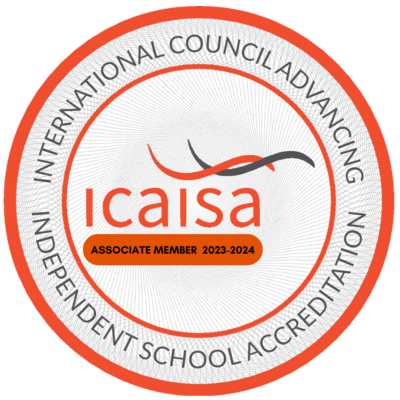|

Recorded Sessions
We are thrilled to share more than 20 deep dive sessions on variety of topics including Classroom Culture, English Language Arts, Learning Resources, Social Studies, STEM, Visual and Performing Arts, and World Language.
The recordings will be available to all registrants on October 19.
Classroom Culture
Building Positive Emotion
Erin Baldecchi, Co-Founder, Happy Youniversity
Sara Corckran, Co-Founder, Happy Youniversity
Science tells us that increased positive emotions put us in a broadened state which makes us more able to see opportunities around us and more open to learning. This interactive session will focus on specific strategies to build your own positive emotions and those of your students. We will explore the topics of gratitude, savoring, kindness, flow, and mindfulness. Participants can expect to leave with specific tools and activities for increasing positive emotions in their life and classroom.
Maymester: Interdisciplinary Capstone Experience for Middle School
Robbyn Szvetitz, Middle School English Teacher, Forsyth Country Day School
Maymester is a way to engage teachers and learners in a joint venture to expand learning outside the walls of the classroom and traditional curriculum. It pulls skills across disciplies together with real world interest, passion, and experience. It also allows for the development of critical thinking, problem solving, and collaboration in more organic ways that are relevant to the learners.
English Language Arts
Create a Culture of Autonomous Readers and Writers
Annalee Taylor, Middle School English Chair, Cannon School
Chase O'Brien, English Teacher, Cannon School
Best practices for engaging the whole community in becoming lifelong readers and writers - WRN, book clubs, fiction signposts, and more!
Isn't it poetic?
Doris Matal, Middle School Teacher, Ravenscroft School
All subjects can use poetry. Language arts teachers use poetry in a variety of creative ways, and teachers of all content areas can infuse poetry for critical thinking and creativity.
Killing Mockingbird
Lilla Clark, Middle School Language Arts Teacher, Trinity Episcopal School
This presentation examines an 8th grade ELA teacher's conclusion that teaching To Kill a Mockingbird perpetuates white supremacy. She shares her critical journey of thought in making this decision, to address the anti-racist work of challenging the Cannon, and to offer strategies for bringing anti-racist practices to the teaching of literature. The session will also look at the critical concepts of voice, representation, and decolonization in literacy learning. Participants will leave with a toolbox to use an anti-racist lens in the teaching of literature.
Encourage Student Advocacy with Spoken Word Poetry
Matthew Koerner, MS Language Arts Teacher, Cary Academy
Lucy Dawson, Middle School Language Arts Teacher, Cary Academy
Jump into our experience encouraging students to use spoken word to advocate for those who experience injustice. Celebrating a yearlong study of social justice in literature, our students finish the year with a spoken word unit that encourages the use of their voices and bodies to express their support for all people. Students are empowered to speak out on issues of injustice and stand up with action that anyone can take to make a difference.
Looking at Student Work: What Are They Thinking?
Alice Oakley, Instructional Coach/Educator, Education Resource Group
Teachers who look at student work for evidence of student thinking more than correctness get information and insights that help them give feedback to students and adjust instruction. The quality of the assignment determines the evidence of thinking students are able to produce. This session will be based on examples of student work in Humanities classes. Participants will interpret student work, suggest feedback for the student, and envision how the teacher could modify the assignment to get different evidence.
Learning Resources
Study Strategies that Support EF Growth
Geraldine Pesacreta, Middle School Teacher, Hill Learning Center
Executive Functioning skills and study skills are often used interchangeably, yet they have different roles in helping students learn. In this session, participants will learn the role of each and the relationship between these skills to enhance student independence with academic success. In addition, participants will learn strategies for students to increase organization and time management to increase intentional focus. Participants will learn the strategies how to help a student create and implement a plan.
Executive Functioning Skills in the Classroom
Ginna Clute, Educational Resource Program Director, Charlotte Country Day School
Laura Hayes, Educational Resource Program Director, Charlotte Country Day School
Executive Functioning Skills is a set of cognitive processes that regulate and individual's ability to sustain a self-directed behavior towards a goal. To reach the goal we need to have: organization, focus, working memory, time management, emotional control. Research shows that the middle school years are a period for brain growth and a great time to intentionally teaching EF skills. This presentation will look at each skill and how to integrate them in the classroom.
Supporting All Students Through Differentiated Instruction
Amy Tomblinson, Middle School Teacher, Ravenscroft School
Learn about the unique needs of bright and gifted learners and explore strategies to extend learning in the classroom. Explore a variety of concrete strategies to extend the content in all classrooms for all learners. See examples of how to meet the needs of all learners while reading novels with a common theme. Learn specific strategies for extension, and projects that challenge students to both learn and lead within their school community.
Social Studies
Literacy for Middle School Social Studies Students
Alan Carter, Middle School History Teacher, Ravenscroft School
The presenter will facilitate discussion and resource sharing on strategies for building literacy skills specific to middle school social studies courses.
Extreme Makeover: Current Events Edition!
Stephanie Griffin, Middle School Academic Dean, Trinity Episcopal School
"Current Events" - the practice of reading the news and summarizing it - is a Social Studies curriculum stand-by; however, this classic assignment can feel stagnant or rote for teachers and students alike. In this presentation, practitioners will learn strategies to bring this assignment into the 21st century by creating engaging current events experiences that promote media literacy, critical thinking, and connections to core curricula.
Centering Black, Latinx, and Indigenous History
Alicia Morris, Middle School Social Studies Teacher, Cary Academy
Lucy Dawson, Middle School History and Language Arts, Cary Academy
Reframe and re-invigorate your history curriculum by challenging students to consider their own Eurocentric bias, center African and Latinx history, and draw meaningful connections between the past and current events in contemporary America. Learn how to get students to identify dominant narratives and missing voices in history, and expose them to the rich and magnificent history of Great African Civilizations and Great Early American Civilizations while focusing on agency, resistance, and positive legacy.
STEM
Teach Coding with Your TI-84 Calculator
Angela McCray-Hancock, Dean of Faculty, Title IX Coordinator, Canterbury School
Teach your math students to code using a TI-84 calculator. This session will cover the basic programming necessary to have students display text, calculate, and solve using formulas. This is great for Hour of Code week or a programming unit. Bring your own TI-84 to this session.
Classroom connections with NCMNS
Rebecca Craps, Middle School Science Teacher, Forsyth Country Day School
Using Conceptual Lenses to Make Math Relevant
Becky Zayas, MS Math Teacher, Forsyth Country Day School
Viewing content through conceptual lenses such as interaction, balance, and connection foster deep learning through cross-curricular connections. This presentation will explore the rationale behind incorporating conceptual lenses and explore how to integrate content through conceptual lenses. Attendees will gain hands-on experience in planning with conceptual lenses and leave with resources to transform their own teaching through this pedagogical approach.
We Can Dance If We Wanna (Teach Science)
Kristina Krzywonos, Middle School Science Teacher, Carolina Friends School
Learn how to incorporate dance and movement into your science units from a science teacher and dance enthusiast. In this session, Kristina Krzywonos will share class materials, stories, and student performances that will get you and your next unit of study on the dance floor.
A Makers Toolbox in a Chaotic World
Leigh Northrup, Middle School Dean of Innovation and Technology, Cannon School
What just happened? We just went from a world of shared power tools, collaborative, and innovative student workspaces to a world where hand sanitizer and Clorox wipes are our most precious classroom resources. During this session we will guide you through a year of Makerspace curriculum, our online badging system, and how we create an inviting space for our diverse student populations. We will also dive into how to create these unique learning opportunities for our students even if they cannot be in the comfort of our labs and classrooms.
Motivating Students through Storylines in STEM
Liana Blue, Middle School Science Teacher, Greensboro Day School
Everyone likes a good story. Stories connect us and pique our curiosity. The questions that arise from stories motivate us to turn the page. But storylines are not just for books; they belong in STEM too! Drawing on the work done by OpenSciEd and the vision of the Next Generation Science Standards, this session explores what a STEM storyline looks like in action and why teaching through storylines matters for motivating all students to learn science.
Visual and Performing Arts
Assessment Made Easy in the Music Classroom
Aaron Craven, Director of Orchestras, Forsyth Country Day School
Do you want to find the most Effective and Efficient assessment tools for your performance based classroom? Are you passionate about helping your students truly understand where they are making mistakes and how they can find the solutions on their own? If so, this session is for you. Using an assortment of free web-based applications we will take a look at how to set-up meaningful recorded playing tests and quizzes and then discuss ways to use these recordings to help students develop their own path for gaining mastery in your classes.
Public Storytelling through Art
Madeline Stambaugh, Middle School Visual Arts Teacher, Forsyth Country Day School
Everybody has a story to tell, but there are countless ways to tell one. How do we decide what we put out into the world? Allowing students to share a piece of their story in a multitude of artistic forms creates a more personal experience, one in which they feel safe to do so. Through incorporating art journaling and reflection, students are better able to understand their processes and bring their most unique self. These meaningful methods are creative outlets that complement the creation of a tangible piece of artwork and they empower students to have agency over their own work.
World Languages
Leer es poder: Reading Your Way to Proficiency
Kristin Boone, Middle School Spanish Teacher, Forsyth Country Day School
Leveled readers are an essential tool in the modern, proficiency-based language classroom. Novels can be used to create classroom community, increase proficiency, provide comprehensible input and allow for differentiation. In this workshop, teachers will explore various ways in which to incorporate novels into their classrooms and acquire concrete information on beginning their own programs. Grow student proficiency through techniques such as free voluntary reading programs, class novels, read alouds, graphic novels, and book clubs.
Keeping Culture Comprehensible
Tyler Gaviria, Middle School Spanish Instructor, Cary Academy
Carolina Conde, Middle School Spanish Instructor, Cary Academy
We will talk about how we curate cultural resources, adapt them to our students levels and then milk them for all they are worth. Grounded in a philosophy that student must be able to the understand target language, we will talk about how we shelter our vocabulary and scaffold the students understanding. We will finish up with a debriefing and sharing of the different strategies used to make sure students understand the target language and the cultural product.
|



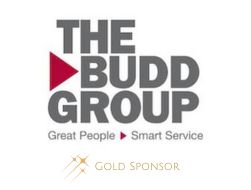

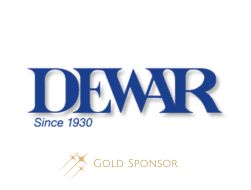



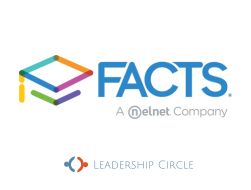
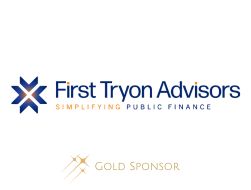
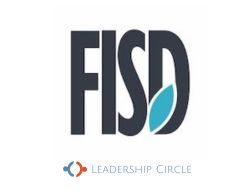

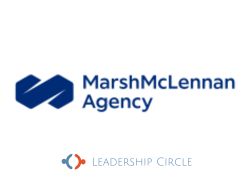
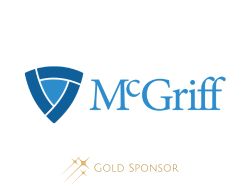

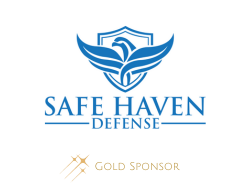

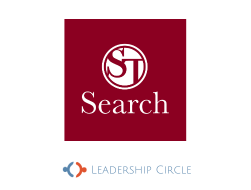


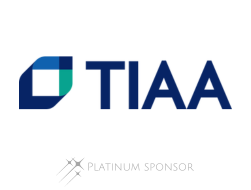
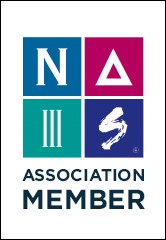 .
. 
